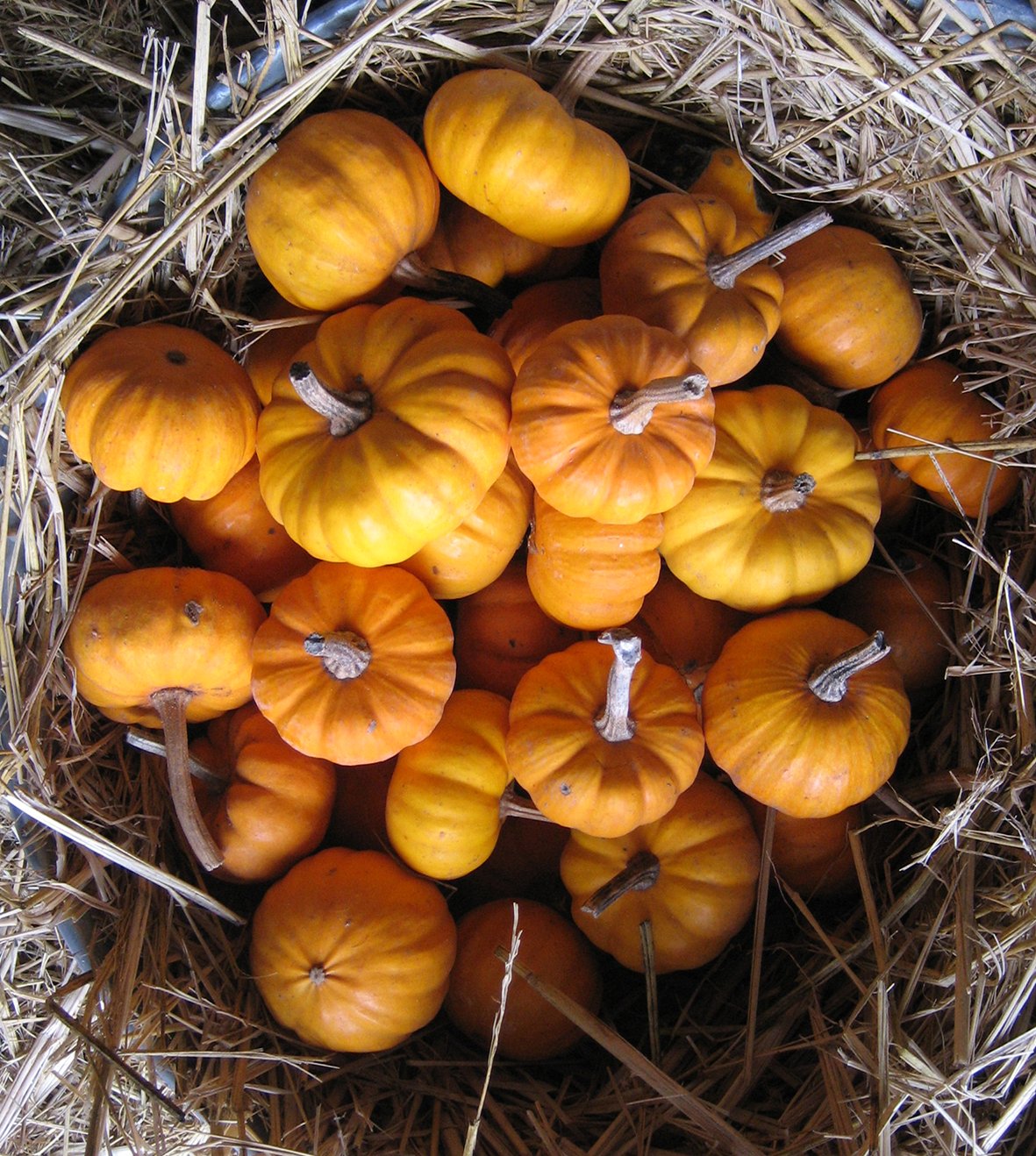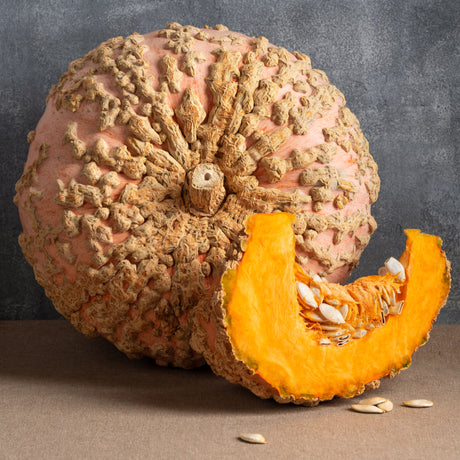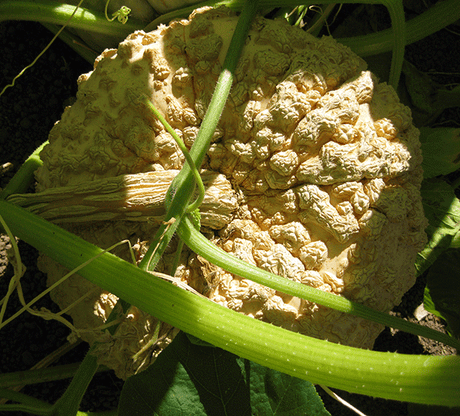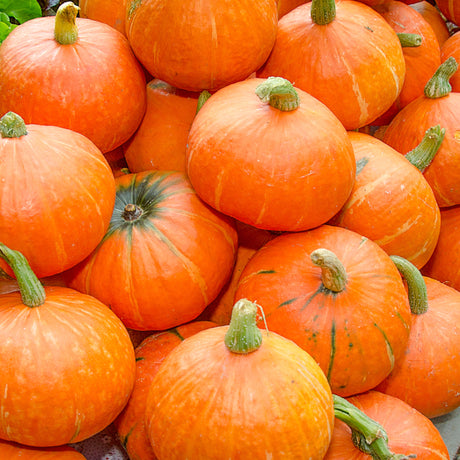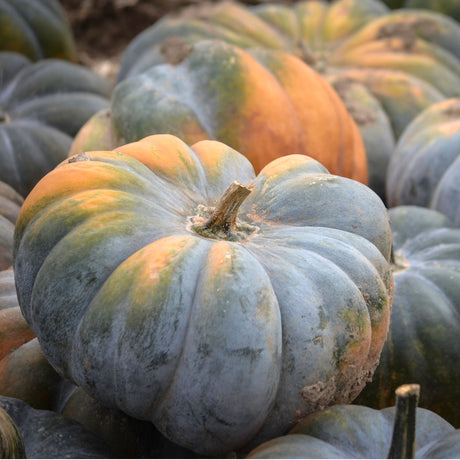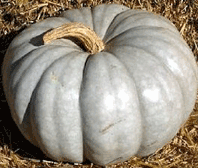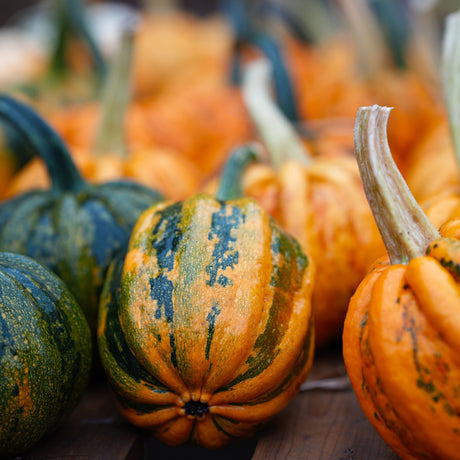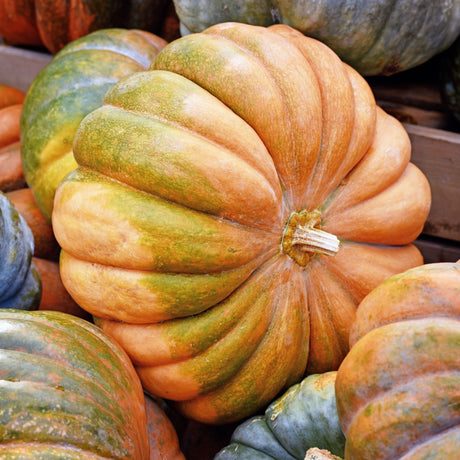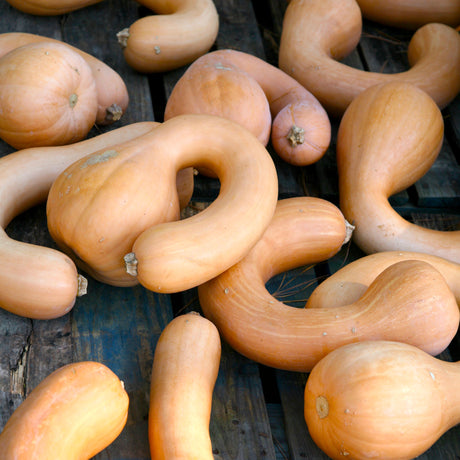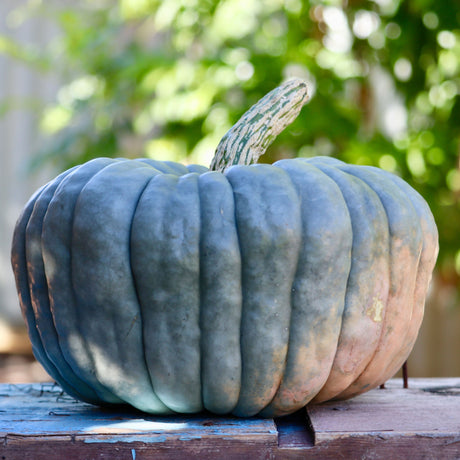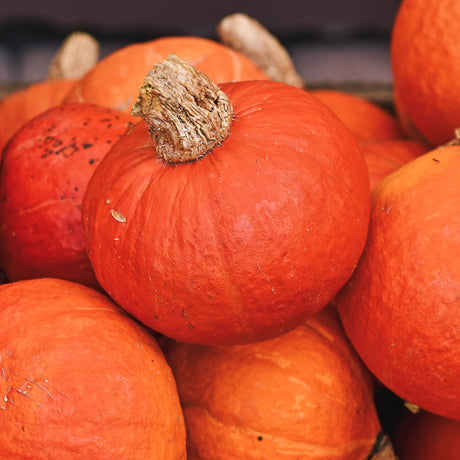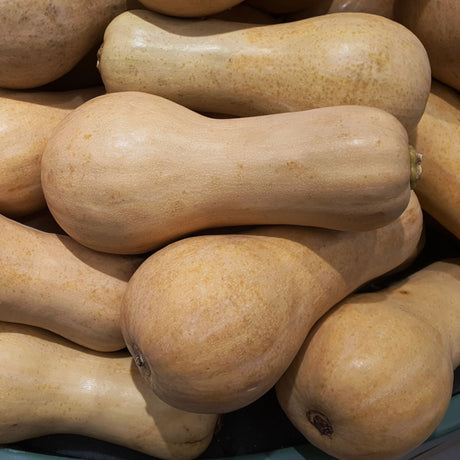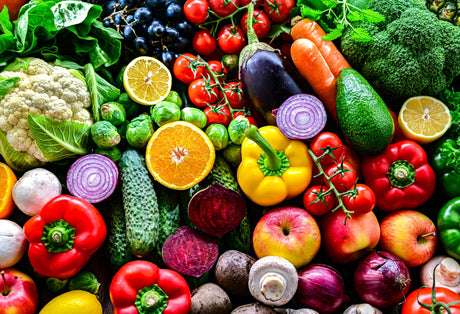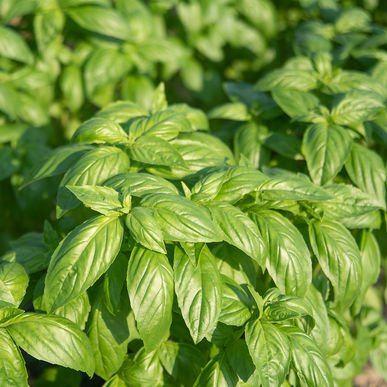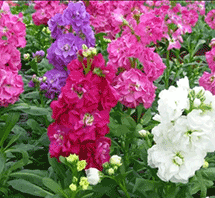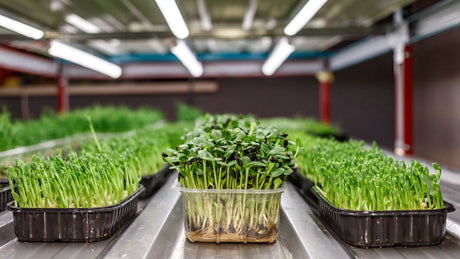- $3.90Unit price /Unavailable
- $3.90Unit price /Unavailable
- $3.90Unit price /Unavailable
- $3.90Unit price /Unavailable
- $3.90Unit price /Unavailable
Pumpkin 'Pennsylvania Dutch Crookneck'
$3.90Unit price /Unavailable- $3.90Unit price /Unavailable
- $3.90Unit price /Unavailable
- $3.90Unit price /Unavailable
More about Pumpkin
Cucurbita spp.
Sow after frost in spring; in tropical areas sow all year. Pumpkins need a good-sized area, grow them on a fence if space is limited. Sow seed 2.5 cm deep, directly into hills of compost, 1 metre apart, into warm soil. Pinching out the growing tip or leader on a pumpkin plant will divert energy and nutrients to the lateral growth or side branches. This stops the vine from sprawling and taking over your garden; it also encourages fruit formation. When the plant is about 1.5 metres long, pinch 2 cm off the very end. The growth tip or apical meristem is the site of growth hormone production; removing the tip stops suppression of the lateral branches' growth. This results in a less sprawling plant with more fruit. Incorporate plenty of well-rotted animal manure before planting. Harvest Pumpkins when fully coloured and the stem is brown. Pick with a stem 6 cm long and dry in the sun before storing.

